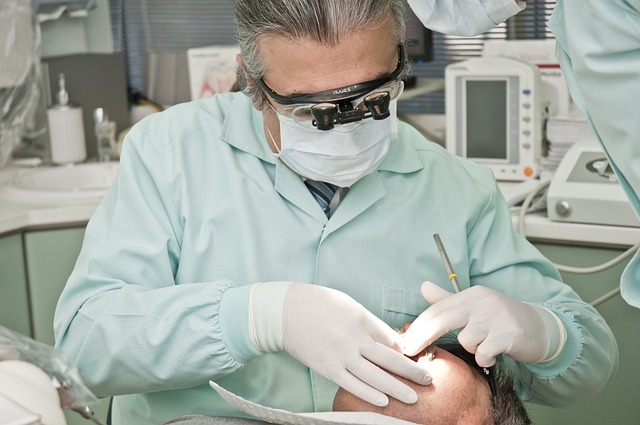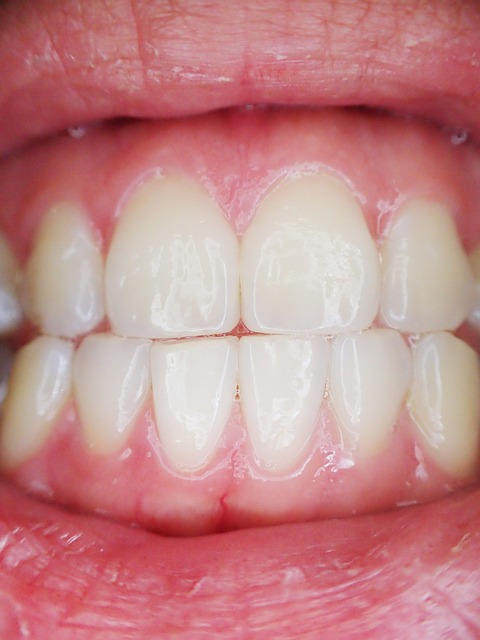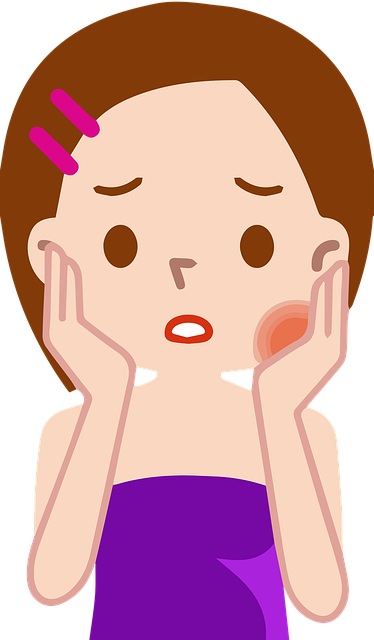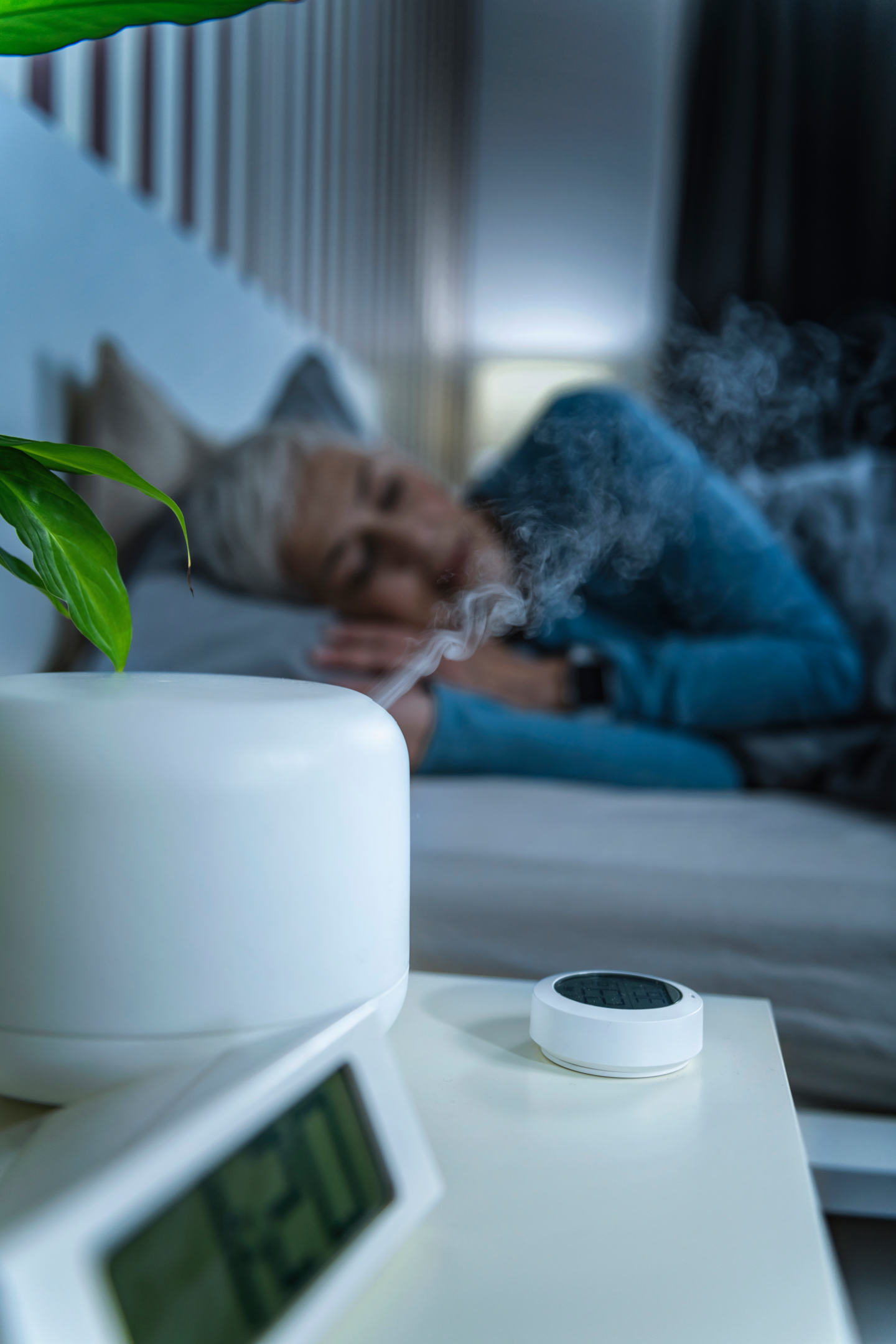Dr. Matthew Olesiak continues to make a significant impact in the medical field through his work at SANESolution and his dedication to evidence-based practices.
Menopause Throat and Mouth Symptoms
As you go through menopause, you may notice various expected changes in your body, such as hot flashes, night sweats, and mood swings; however, the changes you likely don’t expect involve your throat and mouth. That’s right. Thanks to the hormonal changes in this transitional stage of your life, you can expect to face several oral health challenges you may not have anticipated.
This Throat Cleaner and Throat Health blog post will delve into the often unaddressed and unexpected world of menopause throat and mouth symptoms, exploring their causes, prevalence, and prevention. Get ready to discover valuable insights that will assist you in managing your oral health during menopause.
If you want to dominate your throat health this season, check out our The Aging Voice: How Aging Affects Throat Health and Throat Disorders in Rheumatoid Arthritis: Types, Symptoms, Causes, and Treatments guides!

- New Report Says Your Brain Could Be the Key to Reducing Phlegm Over 50
- Doctor's "Leave The Throat Phlegm Behind" Tutorial Goes Viral With People Over 50
- Can You Relieve Throat Phlegm and Coughing In 60 Seconds A Day? This Doctor Says Yes
- How To Banish Phlegm When 50+ (Do This Every Day)
Short Summary
- Understand the link between menopause and throat and mouth symptoms.
- Perimenopause and menopause can lead to various oral health issues, including dry mouth, tooth decay, and gum disease, that impact dental health.
- Practice good oral hygiene, including visiting your dentist every six months for checkups and cleanings, and use a throat cleaner.

The Impact of Menopause on Oral Health
Women going through menopause may experience heightened sensitivity to oral health issues due to hormonal changes. These changes affect the blood flow to the gums and the body’s reaction to toxins produced by plaque buildup.
Additionally, the soft tissue in your mouth, including the skin on the inside of your lips and cheeks, known as the oral mucosa, is similar to the tissue in your vagina and can be similarly impacted by a lack of estrogen. As a result, menopausal women may be more susceptible to developing teeth, gum, and other oral health issues than at other times in their lives.
Menopause Throat and Mouth Symptoms that May Surprise You
Below are the most common throat and mouth issues seen in menopause.
Gum Disease
Gum disease is the most common symptom, affecting 60 percent (1) of menopausal women, according to research.
Gum or periodontal disease occurs when the gums and bones surrounding and supporting the teeth become infected and inflamed. Gingivitis is the early stage, characterized by swollen, red gums that may bleed. Periodontitis is the more severe form, where receding gums and bone loss can occur, and teeth may loosen or fall out.
This disease is common in adults; however, menopausal women are at higher risk due to declining estrogen levels which can affect blood flow to the gums, alter mouth bacteria and lead to jawbone loss, increasing the risk of tooth loss.
Gum disease is a serious issue for everyone because it can lead to other health conditions, like heart disease, diabetes, and Alzheimer’s disease.

Dry Mouth
Research suggests that an estimated 25 percent (1) of women in menopause experience dry mouth, making menopausal dry mouth the second most common issue experienced by females in this life stage.
Dry mouth is a condition in which your salivary glands fail to produce enough saliva to moisten your mouth. It can be caused by certain medications, medical conditions, smoking cigarettes, snoring, and other factors.
Menopause can also trigger a dry mouth and dry lips due to hormonal changes that alter the composition of saliva. It’s worth noting that saliva helps break down food and maintains the level of healthy bacteria in your mouth. So, a change in composition can dry out your mouth and interfere with your mouth’s microbiome, leading to an increased risk of tooth decay and oral infection.
Burning Mouth Syndrome (BMS)
Researchers estimate that 15 percent ( 1) of menopausal or postmenopausal women report experiencing Burning Mouth Syndrome.
Burning Mouth Syndrome, or BMS, is characterized by a sensation of heat, tenderness, numbness, or tingling in the soft tissue inside the mouth. This feeling can occur in multiple areas, but it’s most commonly felt at the tip of the tongue. The symptoms of BMS can develop gradually or suddenly, starting as a tingle or intense sensation.
It is interesting to note that women can experience BMS without any visible changes in their oral cavity. As a result, identifying the cause of BMS is often challenging. Nevertheless, it is most common among postmenopausal women aged between 50 and 70, usually 3 to 12 years after menopause (2).
Although research has not established a causal relationship, experts suspect hormonal changes could be contributing factors (3). According to a study, the intricate interplay between estrogen and the nervous system could be responsible for many of these oral issues during menopause (4).

Tooth Decay
Women in menopause are also more susceptible to tooth loss and tooth decay for several reasons.
One potential issue during menopause is a decrease in hormones that can result in a dry mouth. This lack of saliva makes it difficult to neutralize plaque-produced acids and wash away harmful bacteria, which can lead to tooth decay. Additionally, hormonal changes can upset the balance of good and bad bacteria in the mouth, increasing the risk of cavities and tooth loss, particularly for postmenopausal women.
Change in Taste
As you chew your food, your taste buds work to detect and classify various flavors. While it’s natural for the taste to change with age, menopause-related symptoms such as reduced saliva and dry oral tissue can also alter taste sensation.
Some individuals may experience a metallic, bitter, or salty taste in their mouth even when not consuming anything that would cause it.
Consider using plastic or bamboo utensils and glass or ceramic cookware to reduce metallic tastes.
Oral Thrush
Oral thrush is a type of fungal infection that occurs when there is an overgrowth of Candida albicans, a fungus that is naturally present in the body and on the skin surface.
Hormonal changes can sometimes cause the level of Candida albicans to increase, leading to an overgrowth.
Symptoms of oral thrush include white patches inside the mouth, particularly on the tongue and cheeks, raised sores with a cottage cheese-like appearance, difficulty swallowing, cracking in the corners of the mouth, sore throat, and altered or loss of taste.
Typically, oral thrush resolves on its own within 1 to 2 weeks.

Voice Changes
Vocal changes are so common in menopause that there’s a name for it: Menopausal Voice Syndrome.
As a woman goes through menopause, there are various reasons why her voice may be affected. Firstly, the same decrease in estrogen levels that causes vaginal and oral dryness also dries out the vocal cords. This can also cause muscle tissue to weaken and become thinner, including the throat muscles that affect vocal quality and resonance. Additionally, hormonal changes can make the cartilage tissue in the voice box stiffen, leading to vocal strain and fatigue.
As a result, menopausal or postmenopausal women may experience the following changes in their voices:
- A deepening of the voice
- Frequent throat clearing
- Vocal hoarseness
- A more easily fatigued voice
- A narrow vocal register
- A reduction in range
Preventing Menopausal Throat and Mouth Issues
These are just a few oral health problems that may arise during menopause. Luckily, you can adopt several preventive measures to reduce or avoid these problems.
To prevent uncomfortable menopause mouth symptoms, it’s crucial to maintain or establish a strict oral hygiene routine. The best way to avoid future discomfort is by taking care of your teeth and gums, which can be achieved by:
- Brushing with a soft-bristled toothbrush at least twice daily, especially after eating.
- Flossing at least once a day.
- Reducing the intake of sugary food and drinks.
- Using a medicated mouthwash as directed to address your specific needs.
- Replacing your toothbrush or brush head every 3 to 4 months.
- Regularly disinfecting partials, retainers, and dentures if applicable.
- Visiting your dentist at least every six months for checkups and teeth cleaning.
Treating Oral Health Issues
If you experience oral health issues, a few natural remedies can help.
Dry Mouth or BMS
You can try a few things if you experience a bitter taste in your mouth during menopause due to dry mouth or BMS. Some women have found that sucking on ice chips, sugar-free candy, or chewing sugar-free gum can increase saliva production.
Others have found that drinking more water or consuming fewer spicy foods and alcoholic beverages can be helpful. Rinsing your mouth with water or a mouth rinse after eating may also help.
Using a humidifier, especially at night, can also help alleviate dry mouth. Another option worth considering is consulting your dental professional about mouth gels or sprays that can help increase oral moisture levels.

Oral Thrush
Although oral thrust usually resolves on its own, your doctor may prescribe an anti-fungal medication, typically in a tablet, lozenge, or liquid form.
Rinsing your mouth with warm saltwater several times a day can be beneficial, too. Mix ½ teaspoon of salt with one cup of warm water for the rinse.
Menopausal Voice Syndrome
If you experience troublesome vocal changes in menopause, hormone replacement therapy (HRT) can be prescribed by a qualified and experienced provider to replenish hormone levels. However, it is important to note that HRT may have side effects, and women with certain family health histories, such as breast cancer, may need to avoid this therapy.
Other ways to dry vocal cords and other throat and mouth issues include:
- Staying hydrated
- Avoiding smoky environments
- Limiting alcohol consumption
- Managing allergies
- Using a humidifier to help moisten the throat
- Managing acid reflux
- Resting your voice regularly

Summary
As women go through menopause, their hormone levels undergo significant changes, negatively impacting their oral health. Hormonal imbalances can lead to a range of dental issues, such as gum disease, bleeding gums, tooth loss, dry mouth, oral thrush, and other issues.
It’s important to be aware of these potential effects and take steps to maintain good dental health during this transition period.

Frequently Asked Questions
Can menopause affect your mouth?
Yes. During menopause, a woman’s life and hormones change significantly, making her more susceptible to oral health conditions, including dry mouth, tooth decay, mouth pain, and gum disease.
To help protect her oral health during menopause, a woman should practice good oral hygiene, visit her dentist regularly, and limit her consumption of sugary and acidic foods and drinks.
How does menopause affect your oral health?
Menopause can change the composition of your saliva and decrease its production. The change in composition and reduced saliva production affect your mouth’s microbiome and increase your risk of tooth decay and gum disease.
Can menopause cause esophagus problems?
Yes. As you go through menopause, your hormone levels, particularly estrogen, can affect your stomach and esophagus. This can lead to digestive issues like acid reflux and other symptoms of GERD (Gastroesophageal reflux disease) during perimenopause and menopause.
Can menopause cause dry mouth symptoms?
Yes. Women going through menopause or the phase around it may experience dry mouth due to decreased estrogen and progesterone levels. This condition, called perimenopausal or menopausal dry mouth, occurs when the salivary glands produce less saliva, resulting in a dry, cotton-like feeling in the mouth.

- New Report Says Your Brain Could Be the Key to Reducing Phlegm Over 50
- Doctor's "Leave The Throat Phlegm Behind" Tutorial Goes Viral With People Over 50
- Can You Relieve Throat Phlegm and Coughing In 60 Seconds A Day? This Doctor Says Yes
- How To Banish Phlegm When 50+ (Do This Every Day)
References
1- https://www.ncbi.nlm.nih.gov/pmc/articles/PMC3793432/
2- https://pubmed.ncbi.nlm.nih.gov/23411996/
3- Orenstein B, Sanjai Sinha M. Surprising Menopause Symptoms. EverydayHealth.com. https://www.everydayhealth.com/menopause-pictures/menopause-symptoms-that-may-surprise-you.aspx. Published 2021. Accessed January 18, 2022.
4- https://bmcwomenshealth.biomedcentral.com/articles/10.1186/s12905-021-01401-6
Dr. Matthew Olesiak continues to make a significant impact in the medical field through his work at SANESolution and his dedication to evidence-based practices.



